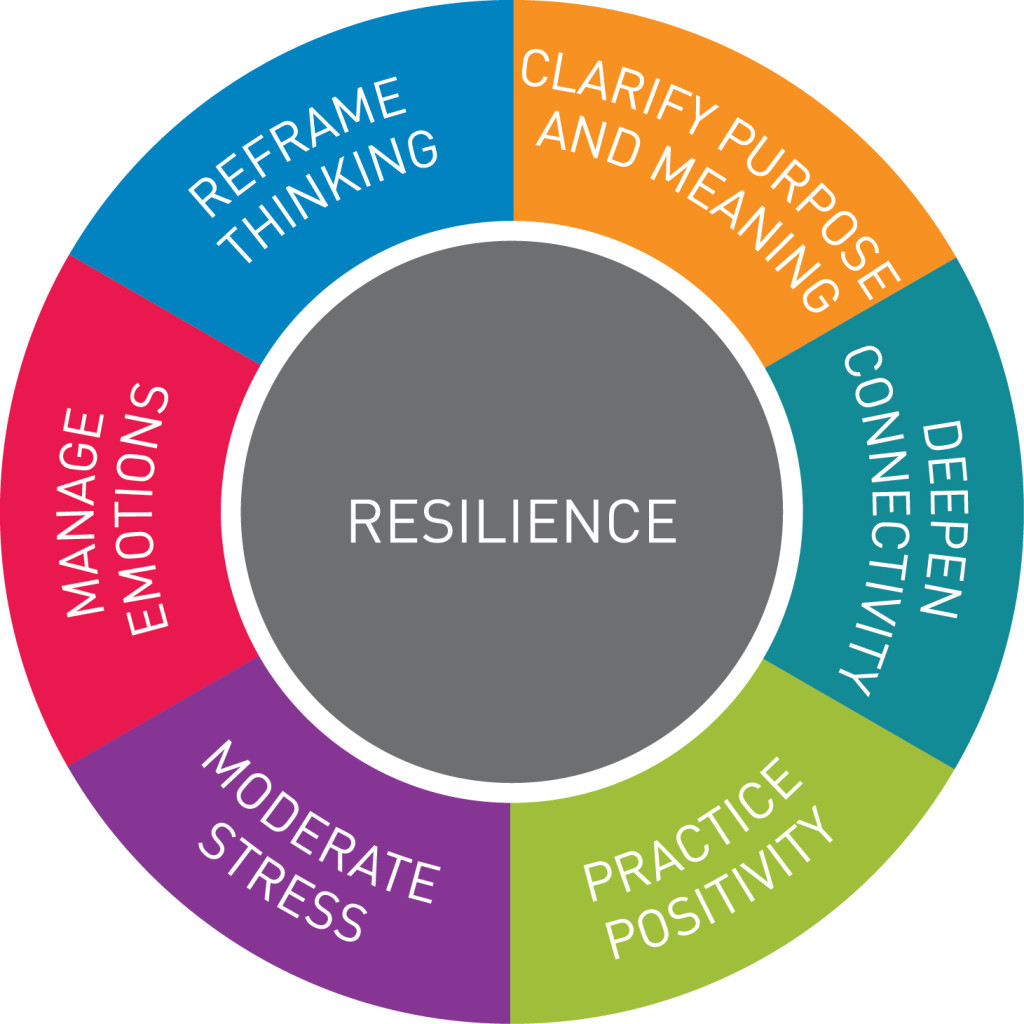
Being resilient enables you to respond with skill to life’s unwelcome challenges quickly, adaptively and effectively.
Our 6 ways to Boost ResilienceTM programs are the culmination of over a decade of research in the area. We take the latest neuroscience and evidenced based research to build best practice and bring meaningful change and enhanced well-being into the lives of people who in turn create a resilient workforce.
There is ample evidence suggesting that organisations undergoing significant change place a burden on the mental health and well-being of its employees; at significant cost.
- Reduced absenteeism – Resilient people are less likely to become ill during difficult times. They also sustain good health and motivation when under continual pressure
- Stronger teams – resilient people help their communities to get through hard times better and are more supportive towards one another especially during difficult times
- Positive morale – resilient people are more optimistic about their future and cope well with high levels of ongoing disruptive change. They bounce back more easily from setbacks
- Open to change – resilient people are capable of, and change to a new way of working and living when the old way is no longer possible or working; and
- Resilient people do all the above without acting in dysfunctional or harmful way across the different domains of their life (Al Siebert)

Cost of building resilience
Download PricewaterhouseCoopers (PwC) report PwC Beyond Blue Workplace ROI Report May 2014 outlining the return on investment on creating mentally healthy workplaces. Its research suggested that for every dollar invested in implementing appropriate actions, there is on average a $2.30 return on investment. One such action suggested in the report is to build worker resilience.

